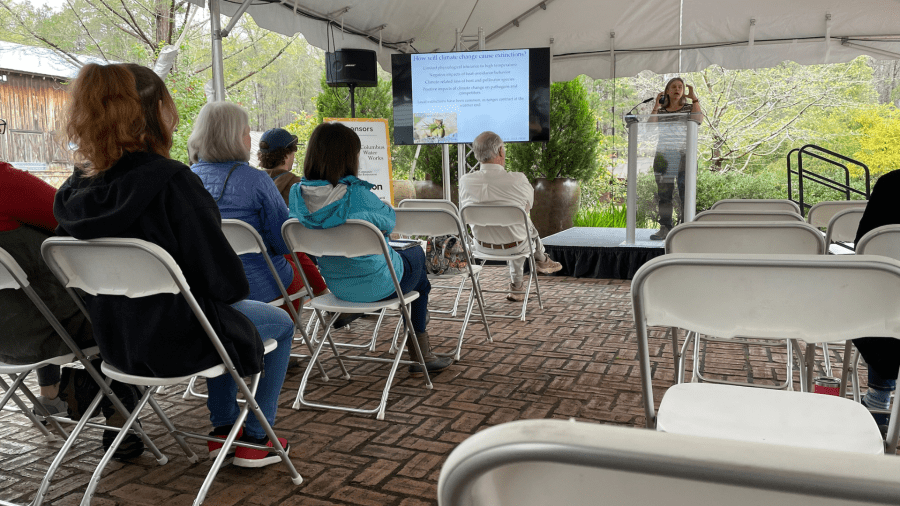Columbus Botanical Gardens talks tackling climate change

COLUMBUS, Ga. (WRBL)– The Columbus Botanical Gardens (CBG) hosted its annual Naturalist Symposium March 16, and this year’s event focused on the effects a changing climate has on the natural world.
“We want to create stewards of the environment,” said Lauren Moore, the Environmental Education Coordinator for CBG. “We want to be a place where people connect to the environment and then they can go out into the world and spread that knowledge.”
A key component in helping those who attended understand the ideas surrounding climate change and how it affects the world around us were the guest speakers who attended the event.
The five speakers who attended the event were Ashley Desensi of the Native Plant Coalition, Dr. Jill Anderson from the University of Georgia, McKenzie Beverage of the Georgia Climate Project, and Dr. J. Marshall Shepard from the University of Georgia.

“Local engagement is key,” said Anderson. “The idea is that we can engage locally and try to have more global impact from what we do. So, we might try to do the local events that we can, do local restoration, but also work to improve the climate in our localities and if everyone around the world was doing local actions, I believe it would push the needle.”
Dr. Anderson also said she believes we need key political actions to reduce greenhouse gas emissions and she is not the only one who believes that.
One such person is Dr. Troy Keller, the Chair of Earth and Space Science at Columbus State University.
“The federal government, for instance, literally has billions of dollars in grants and incentives to encourage people to move to sustainable electricity sources like solar, wind, and others,” says Dr. Keller.
The federal incentives mentioned come in the form of the Inflation Reduction Act, which includes Climate Pollution Reduction Grants (CPRGs).
According to the Environmental Protection Agency, “The Climate Pollution Reduction Grants (CPRGs) program provides $5 billion in grants to states, local governments, tribes, and territories to develop and implement ambitious plans for reducing greenhouse gas emissions and other harmful air pollution.”
The state of Georgia submitted its final plan for a CPRG on March 8, titled the Peach State Voluntary Emissions Reduction Plan.
“If you want to see what the future of the world is,” said Dr. Keller. “Its what happens in the United States.”
For the latest news, weather, sports, and streaming video, head to WRBL.

